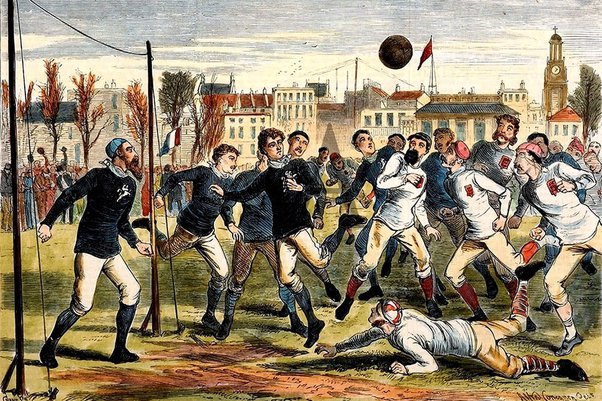The History of Football
Origins and Early History:
Football, known as soccer in some countries, has ancient origins dating back to various cultures and civilizations. The earliest forms of the game can be traced to China during the Han Dynasty (206 BC – 220 AD), where a game called “Cuju” involved kicking a ball into a net. Similar games were played in Ancient Greece and Rome, known as “Episkyros” and “Harpastum,” respectively.

Medieval and Renaissance Europe:
In medieval Europe, various forms of football emerged, particularly in England. These early versions of the game were often chaotic and violent, with few rules and an unlimited number of players. The game was commonly played during festivals and on holy days.
Modern Football’s Birth:
The modern version of football began to take shape in the mid-19th century in England. Public schools such as Eton, Harrow, and Rugby developed their own versions of the game, each with different rules. In 1863, the Football Association (FA) was founded in London, which standardized the rules of the game, distinguishing it from rugby football.
Global Spread and FIFA Formation:
Football quickly spread across the globe, particularly in Europe and South America. The Fédération Internationale de Football Association (FIFA) was founded in 1904 to oversee international competition. The first FIFA World Cup was held in 1930 in Uruguay, establishing football as a global sport.
Key Developments:
- Professionalism: The introduction of professionalism in football occurred in the late 19th century, allowing players to be paid for their talents and skills.
- Tactical Evolution: Football tactics evolved significantly over the 20th century, with innovations such as the WM formation, total football, and tiki-taka transforming the way the game is played.
- Women’s Football: Women’s football has grown substantially, particularly in the late 20th and early 21st centuries. The first Women’s World Cup was held in 1991, and the sport continues to gain popularity and recognition.
Major Tournaments:
- FIFA World Cup: The pinnacle of international football, held every four years, featuring teams from around the world.
- UEFA European Championship: The top national teams from Europe compete every four years.
- Copa America: South America’s primary international competition, also held every four years.
Club Football:
Club football is incredibly popular, with major leagues such as the English Premier League, La Liga (Spain), Serie A (Italy), and the Bundesliga (Germany) attracting millions of fans globally. The UEFA Champions League is the premier club competition in Europe, featuring the best teams from across the continent.
Impact and Culture:
Football is more than just a sport; it is a cultural phenomenon. It has the power to unite people across different backgrounds and create a sense of community and identity. Iconic players like Pelé, Diego Maradona, Lionel Messi, and Cristiano Ronaldo have become global superstars, influencing millions of fans worldwide.

Conclusion:
The history of football is rich and varied, from its ancient origins to its modern-day status as the world’s most popular sport. Its ability to inspire passion and bring people together ensures that football will continue to thrive and evolve for generations to come.

